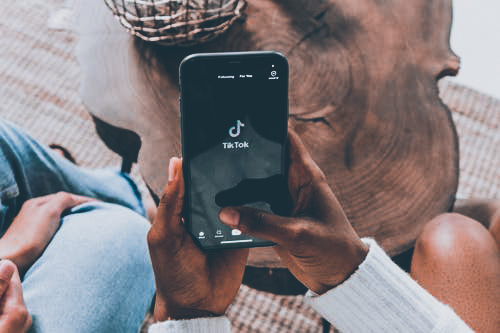TikTok, a Chinese-owned social media platform, has chosen Kenya as its base for its African operations.
This was announced on Thursday after a virtual meeting between President William Ruto, Trade CS Moses Kuria and TikTok CEO Chew Shou Zi. Mr. Chew promised to moderate the content on the platform according to community standards.
“During the meeting, Mr. Chew also agreed to set up a Kenyan Office to coordinate its operations in the continent. He pledged to hire more Kenyans to work for the platform,” said State House.
𝐓𝐈𝐊 𝐓𝐎𝐊 𝐓𝐎 𝐌𝐎𝐃𝐄𝐑𝐀𝐓𝐄 𝐈𝐓𝐒 𝐂𝐎𝐍𝐓𝐄𝐍𝐓
Short-form video hosting service TikTok will work with Kenya in reviewing and monitoring its content.
The move, President @WilliamsRuto said, will ensure that content on the platform adheres to agreed guidelines.
In a… pic.twitter.com/6vYh4xxWHe
— State House Kenya (@StateHouseKenya) August 24, 2023
TikTok community guidelines
In March, TikTok announced its community guidelines for content moderation which are based on four pillars that aim to protect users from harmful, inappropriate, or unwanted content.
The first pillar is to remove violative content, which includes content that is illegal, harmful, hateful, or abusive.
The second pillar is to age-restrict mature content, which includes content that is sexual, violent, or graphic. TikTok said that it uses technology and human review to identify and limit such content to adults who are 18 years or older.
The third pillar is to make content ineligible for recommendation in the For You feed, which is the main way users discover new content on TikTok.
TikTok said that it does not recommend content that is not suitable for a broad audience, such as content that is offensive, sensitive, or controversial.
The fourth pillar is to empower the community with information tools and resources. It said that it gives users options to control their own experience, such as reporting, blocking, muting, or filtering content.
The platform also said that it provides users with educational and safety information about its policies and features.
Petition to ban TikTok in Kenya
On the other hand, there is a petition to ban TikTok within parliament.
Bob Ndolo, an executive officer of Briget Connect Consultancy, filed the petition.
Ndolo claimed that the social media platform is spreading inappropriate content that violates the cultural and religious values in Kenya.
TikTok is unsuitable because it allegedly promotes “violence, explicit sexual content, hate speech, vulgar language and offensive behaviour, which is a serious threat to the cultural and religious values of Kenya,” Speaker Moses Wetang’ula said in a letter to legislators, citing petitioner Bob Ndolo.
“The petitioner is concerned that if the platform is not prohibited in Kenya, the app’s addictive nature would lead to a decline in academic performance and ascend in mental health issues such as depression, anxiety and sleep deprivation among the youth,” Wetang’ula said.
Speaker Wetangula receives petition to ban TikTok in Kenya pic.twitter.com/vpQsGmYaoM
— Kenyans.co.ke (@Kenyans) August 15, 2023
However, several organisations have expressed their opposition to the ban, arguing that TikTok is a space for creative expression, information sharing, social interaction, and public participation.
They state that banning TikTok would violate the digital rights of Kenyans and limit their access to alternative sources of news and information.
They urge the parliament to reject the petition and instead engage with TikTok to address the issues raised.
“Adopt a holistic and human rights-based approach in line with constitutional and international human rights standards to ensure the protection of citizens’ fundamental rights while addressing legitimate concerns surrounding social media use,” they state.
“Any actions that seek to limit freedom of expression for the so-called protection of public morality must align with international human rights law principles, not the moral or religious beliefs of individuals.”




